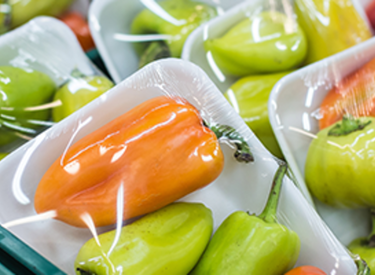Natural skin care is generally understood to refer to those products characterised by the lack of artificial ingredients, such as preservatives, petrochemical derivatives, mineral oils, scents and extreme detergents.
Normally, natural skin care products are used natural components such as plant oils, necessary oils, natural and flower extracts (both aqueous and waxy), that have actually been prepared in the “old style way”, without chemical processing or adjustment. Often, ethically produced animal derivatives, such as beeswax, might likewise exist in natural skin care (1).
Natural skin care made with approved organically produced raw materials and practices can be organic certified by the relevant organic companies.
Unfortunately, there are numerous items in the market that claim to be either natural or that are skillfully marketed for their particular botanical extract or vitamin, amongst a thick mixed drink of synthetic ingredients. These are the “pseudo-natural” items (CBD Skin Care). To assist clarify if a skin care item is actually natural, it is recommended to check out the components section in the label.
Why is natural skin care better than artificial?
Products that are made from active ingredients that have been extracted naturally from sustainably kept plants and crops manifest the essence, the energy, the qualities and the advantages of the source raw material, in ways that synthetics active ingredients do not.
Basically, the geographical place, the soil and the water the plants are grown in, as well as the sun exposure, the seasons and harvest contribute to the mature plants and crop yields in unique ways.
These aspects can not be mimicked in the laboratory or controlled nurseries, as the natural exposure to the environmental conditions facilitates advancement of subtle distinctions in the plants. These are then reflected in the quality of the drawn out oils, in addition to on their specific structure, homes and benefits.
Besides, synthetic ingredients are produced in labs utilizing scientific, yet typically dangerous procedures involving making use of carbon dioxide, propylene glycol or hexane based approaches. Although these chemical agents may only be present is trace amounts in the last synthesised active ingredients, it is uncertain what impact they may have as they build up in our bodies, over an extended period of exposure (2).
Naturally, a few of the natural extracts and oils might likewise be impacted or destabilised by the natural extraction methods used in their preparation. For these reasons makers of natural skin care items provide fantastic consideration to the sourcing of their basic materials and how natural ingredients are prepared from the latter.
What is Unique About Plant Oils?
Plant oils are made up of intricate mixtures of various fatty acids (lipids). It is the particular mix and ratio of these fats that figures out the distinct character of any oil. In addition to the primary lipid fraction, there are also other crucial bioactive substances such as the phospholipids, phosphatides, phytosterols, phytoestrogens, isoflavones and vitamins. These bioactives are known as the unsaponifiable fraction of the oil. They typically are present is small amounts and are distinct signatures of the oils (3).
To demonstrate how the oil composition determines the distinction in practical residential or commercial properties, the normal fat profile of apricot kernel and borage oils as explained in Kusmirek (3) are compared below.
1 – Apricot kernel oil is a mix of 58 – 74% of oleic acid, 25 – 30% of linoleic, with the remainder 4 – 7% composed of palmitic, palmitoleic, stearic and alpha-linolenic acids. The unsaponifiable material is around 0.5 -0.75%.
2 – Borage oil is a mix of 30 – 40% linoleic acid, 8 – 25% gamma linolenic acid, 15 – 20% oleic acid, 9 – 12% palmitic acid, 3 – 4% stearic acid, 2 – 6 % eicosenoic acid. The unsaponifiable material is roughly 1%.
Apricot kernel oil is a terrific nourishing and emollient oil that is easily absorbed. These properties are attribute to the high portions of oleic and linoleic acids. Additionally, apricot kernel oil is also an outstanding source of vitamin A, present in the unsaponifiable matter.
Borage oil is understood for its nourishing and penetrating residential or commercial properties attributed to the presence of linoleic and oleic acids, however in addition the high content of gamma-linolenic acid confers its regenerating and firming qualities.
The distinctions in the properties of apricot kernel and borage oils, as well as those of other oils not talked about here, show the significance to blend various plant oils for optimum skin care, so that the skin is properly fed, continuously hydrated, smooth sensation and equipped to regrow efficiently. These are necessary to promote a healthy skin radiance, despite age.
However, even if the synthetics oils were to replicate the specific blends and ratios of plant derived fats and unsaponifiables, it would be nearly difficult to simulate into the artificial oils the contribution from the energy that is held in the plant, from which the equivalent natural oils were drawn out. Thus, natural ingredients are various from their artificial equivalents.
What about important oils and other botanicals?
Essential oils are concentrated extracts of aromatic and other unstable plant substances, often consisting of growth factors known for their regenerative homes. They are the source of the fragrances of nature and might be utilized to add aroma to natural items. Because of their focused nature and high cost to produce, only percentages of necessary oils are utilized in natural skin care. Besides, as vital oils might be annoying to the skin, they need to never ever be utilized pure.
In contrast to oils, floral/herbal waters are the liquid extracts from flowers/plants. Naturally produced oils and liquid extracts are made through distillation, steaming, or infusion techniques. These are slow and frequently ineffective processes that add to cost. However, the products produced using non-synthetic techniques are much safer and much healthier than those extracted with the use of synthetic methods.
Is there a problem with the variation in natural component batches?
The quick response is NO!
Definitely, naturally produced components reveal “batch variation”, however this is part of nature, demonstrating the cycles of modification. These are natural bio- rhythms, and as with everything in nature in some cases there is abundant sunshine, other times there are only clouds. Naturally, these weather condition changes impact the growth patterns of the plants.
This indicates that periodically a few of the natural ingredients may include a slightly higher or lower percentage of one and even numerous of the elements, but over a time period, these variations balance out. The key point is that the overall effect of using natural active ingredients is still useful in the long run.
Advocates of the mainstream cosmetic market challenge this variation associated with natural ingredients. Instead they advocate that artificial components are a far much better option to manufacture any items, consisting of skin care. They argue that synthetic ingredients are clinically managed, exacting, standardised and can be made in an absolutely reproducible manner. But, at the end of the day … they are not natural!




